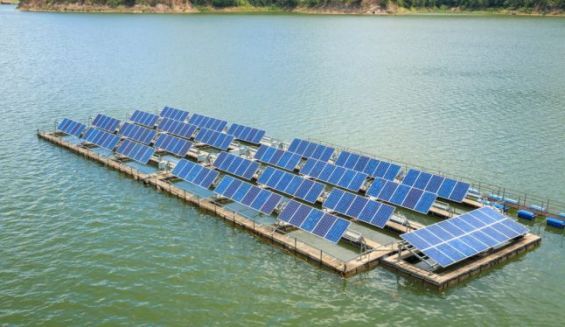A group of Moroccan researchers has designed, developed and built a small-scale floating photovoltaic system (FPVS), an emerging technology application in which solar photovoltaic systems are sited directly on water instead of land or buildings.
The design and construction of this test bench, as described by the researchers, was to investigate the potential of the floating PV system and compare its performance to that of the overland PV system.
Their conclusions were presented in «Design and construction of a test bench to investigate the potential of floating PV systems», which was published on 27 August in the Journal of Cleaners Production, a peer-reviewed academic journal covering transdisciplinary research on cleaner production.
In their paper, the researchers from Morocco’s Sidi Mohammed Ben Abdellah University in Fez, recall that a bench consisting of FPVS and OPVS and measurement station has been proposed and established.
To conduct the investigation, the team installed the floating system on a pond and the onshore PV system nearby. The two installations both had a «power output of 87.5 W, with the panels arranged in two parallel strings, each formed by two modules», the paper explains.
«The panels in both systems have the same electrical characteristics and are the same size, at 55 cm x 28 cm», it added.
A higher efficiency than the onshore system
The test operations were carried out over five days, nine hours a day. The results, deemed surprising, showed that the average temperature of the floating PV modules was significantly lower that the onshore PV modules'. The difference was up to 2.74 °C, the scientists revealed.
«This means that FPVS can benefit from the natural cooling effect of water and operate with higher efficiency as compared to OPVS», they concluded.
The test results also showed that the floating PV system generates «up to 2.33% more daily energy than the OPVS».
Further experimental tests also showed that FPVS produces the highest energy when it is installed at the annual optimal tilt angle.
In their paper, and based on the findings of their experiment, the scientists concluded that «floating PV technology can provide a great opportunity for Morocco with huge solar radiation, coastal surfaces and many water bodies».





 chargement...
chargement...













